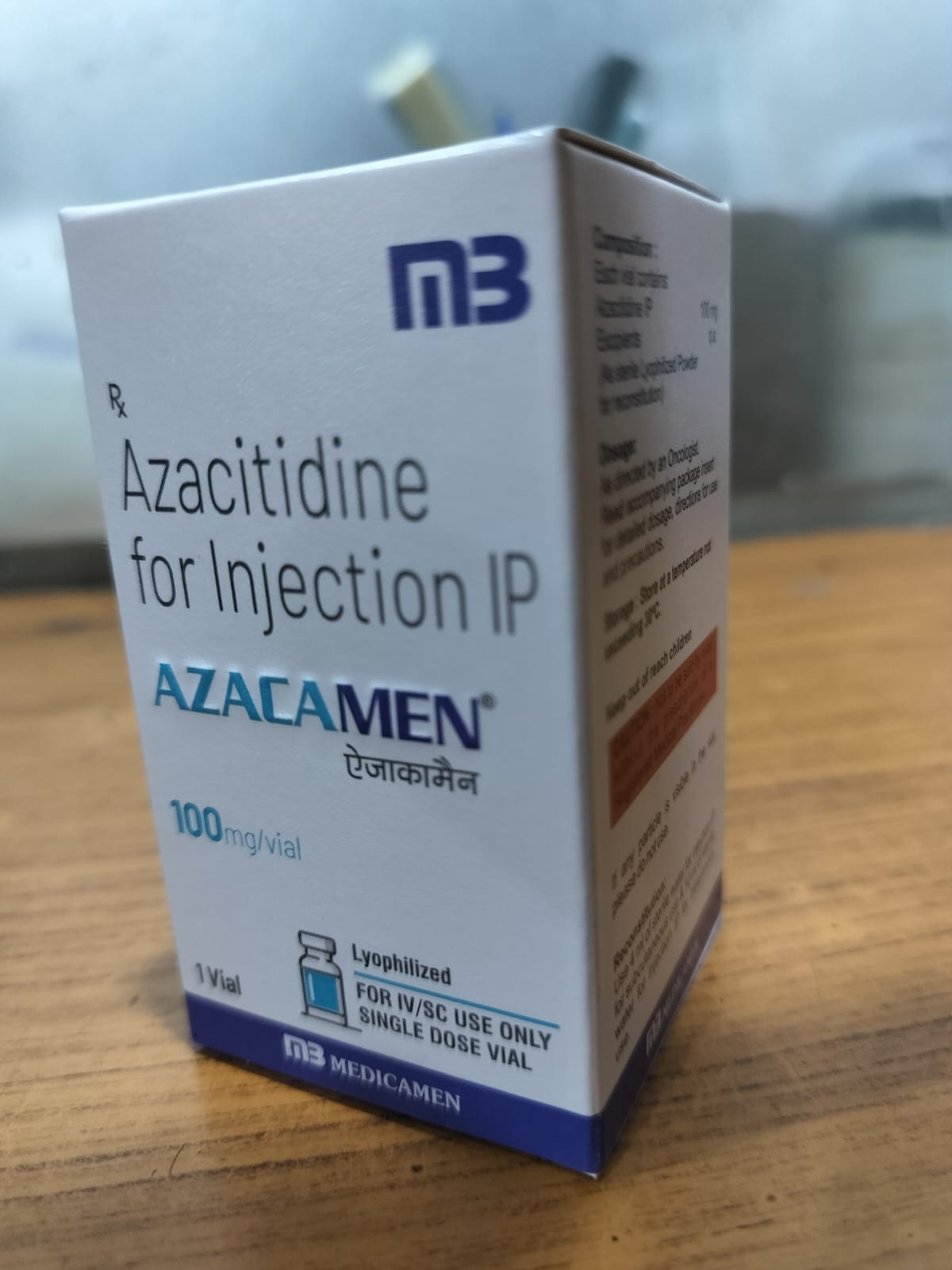Product Introduction:
Oxa is an intravenous chemotherapy medication that belongs to the alkylating agent/platinum analog class. It is widely used in combination regimens like FOLFOX (Folinic acid, Fluorouracil, and Oxaliplatin) for treating advanced or metastatic colorectal cancer. It offers improved survival rates and disease-free progression in both adjuvant and metastatic settings.
Uses (Indications):
Oxa (Oxaliplatin) is used to treat:
-
Metastatic colorectal cancer (in combination with other chemotherapies)
-
Stage III colon cancer (as adjuvant therapy after surgical resection)
-
Rectal cancer (part of neoadjuvant or adjuvant therapy)
-
Advanced gastric cancer (off-label use in some cases)
-
Esophageal cancer (as part of multi-drug chemotherapy)
-
Pancreatic and biliary tract cancers (in select treatment protocols)
Storage Instructions:
-
Store below 25°C in a dry environment
-
Protect from light
-
Do not freeze
-
Once reconstituted and diluted, the solution should be used within 24 hours if stored at 2–8°C
-
Use aseptic technique during preparation
How It Works (Mechanism of Action):
Oxaliplatin exerts its anticancer effects by forming platinum-DNA adducts, causing intra-strand and inter-strand crosslinks in DNA. This prevents DNA replication and transcription, ultimately leading to cell cycle arrest and apoptosis (programmed cell death). Unlike cisplatin, Oxaliplatin does not significantly affect renal function and is less nephrotoxic, though it has notable neurotoxicity.
Side Effects:
Common Side Effects:
-
Peripheral neuropathy – cold-induced or cumulative, often dose-limiting
-
Nausea and vomiting
-
Fatigue and weakness
-
Diarrhea or constipation
-
Anemia, neutropenia, and thrombocytopenia
-
Allergic reactions during infusion
Severe Side Effects:
-
Severe sensory neuropathy, which may be permanent
-
Laryngopharyngeal dysesthesia – a unique choking or tightness in throat sensation
-
Myelosuppression – increases risk of infections and bleeding
-
Anaphylaxis or severe hypersensitivity reactions
-
Hepatotoxicity – sinusoidal obstruction syndrome (SOS)
-
Pulmonary fibrosis (rare but serious)
Dosage (Typical Recommended Dose):
For Colorectal Cancer (FOLFOX regimen):
-
85 mg/m² IV infusion every 2 weeks in combination with 5-FU and leucovorin
-
Administered over 2 hours via infusion
-
Dose adjustments may be required in patients with hepatic impairment, severe toxicity, or elderly patients
Method of Administration:
-
Administered via intravenous infusion after dilution in 5% dextrose solution only (never saline)
-
Infuse over 2–6 hours, depending on combination protocol
-
Must be given prior to fluorouracil if used in combination
-
Requires central or peripheral IV access with good vein integrity
-
Monitor patient for infusion reactions during administration
Precautions:
-
Avoid cold exposure – neuropathy is worsened by cold; patients should not drink cold fluids or touch cold items
-
Renal function monitoring – dose modification in moderate impairment
-
Baseline and periodic blood counts due to risk of myelosuppression
-
Avoid in pregnancy – Category D
-
Liver monitoring – particularly in long-term or high-dose treatment
-
Infusion reaction risk – premedication with antihistamines or corticosteroids may be considered in susceptible individuals
Drug Interactions:
-
Live vaccines – avoid due to immunosuppression risk
-
Nephrotoxic agents – may worsen renal function (e.g., aminoglycosides)
-
Other platinum-based agents – cumulative neurotoxicity
-
Anticoagulants – increased risk of bleeding if thrombocytopenic
-
5-Fluorouracil – given in sequence with oxaliplatin, enhances efficacy but may increase toxicity
Allergies (Warnings for Allergic Reactions):
-
Hypersensitivity to oxaliplatin or other platinum compounds is a contraindication
-
Anaphylaxis may occur within minutes of infusion—requires immediate discontinuation and resuscitation
-
Symptoms include rash, bronchospasm, hypotension, chest tightness, and facial swelling
-
A desensitization protocol may be used in patients requiring continued treatment despite prior reactions
Overdose Information:
-
No specific antidote; overdose may increase risk of bone marrow suppression and neurotoxicity
-
Management is supportive, with careful monitoring of hematologic parameters and neurological symptoms
-
Hospitalization and intensive supportive care may be needed in severe cases
Missed Dose Instructions:
-
If a scheduled dose is missed, consult the oncologist before resuming treatment
-
Doses are usually aligned with chemotherapy cycles, so do not self-administer or reschedule without supervision
-
Blood counts and organ function should be re-evaluated before resuming
Additional Notes:
-
Cold sensitivity can persist even after treatment ends—patients should be counseled on long-term precautions
-
Ensure adequate hydration during and after infusion
-
Patients should be aware of long-term neuropathy risks, which may become irreversible
-
Fertility may be affected; sperm or egg preservation should be discussed prior to therapy
-
Use only dextrose solution for dilution—Oxaliplatin is incompatible with chloride-containing solutions



